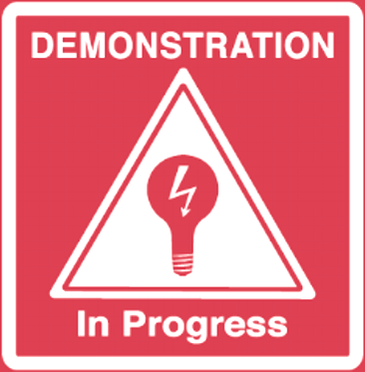|
(NOT) All You Need To Know About Strikes In North Carolina (but at least it's a good start)
Much thanks to Kristin Beller and the Wake NCAE Organizing Team for this content - teamwork makes the dream work! Have you seen calls for strike on social media or heard coworkers asking when we will follow Chicago’s lead? We are all feeling incredibly inspired by the incredible organizing work that CTU members did between their strikes. That work has led to a powerful base of members and community supporters who trust each other to stand strong until they win real improvements for their schools. That work isn’t magic, and it’s not easy. But it also isn’t impossible. Here are some answers to the questions we are hearing the most: Are we getting a raise? We won’t know for sure until either the General Assembly and Governor sign a budget or a bill addressing salaries for public school employees, but we are hearing that a bill will likely be passed before they adjourn on October 31st. Is it true that we don’t get retroactive pay if they wait until January to increase our salaries? Is this true for both raises and step increases? No. Whenever a budget or a bill addressing salaries is passed, you will be paid retroactively back to July 1, 2019. What is the strike law in NC? Article 12 of Chapter 95 of the NC General Statutes addresses this: “§ 95-98. Contracts between units of government and labor unions, trade unions or labor organizations concerning public employees declared to be illegal.…§ 95-98.1. Strikes by public employees prohibited. Strikes by public employees are hereby declared illegal and against the public policy of this State….§ 95-98.2. Strike defined. The word "strike" as used herein shall mean a cessation or deliberate slowing down of work by a combination of persons as a means of enforcing compliance with a demand upon the employer….” What are the consequences of violating it? Article 12 of Chapter 95 of the NC General Statutes also addresses this: “§ 95-99. Penalty for violation of Article. Any violation of the provisions of this Article is hereby declared to be a Class 1 misdemeanor. (1959, c. 742; 1993, c. 539, s. 667; 1994, Ex. Sess., c. 24, s. 14(c).)” In speaking with an NCAE lead attorney, it appears that the consequences of violating the above law is incredibly subjective. The Assistant District Attorney decides whether or not a charge against a person proceeds to court and, if found guilty of a Class 1 misdemeanor, consequences range from various amounts of community service, probation, or the maximum penalty of 120 days in jail and/or discretionary fines, all dependent on a variety of factors including but not limited to the length of time a strike lasts, the political climate, and the public’s reaction to the action. Non-certified staff are at-will employees, and certified staff can have their teaching license revoked if the school board of the district for which they work decide to report them to the State Board of Education (again, very subjective). You can find more information in Chapter 115C of the NC General Statutes, the NC Code of Ethics, and the State Board of Education’s 9 reasons to revoke a teaching license. I think people (at my work site, in my district, across NC) are ready and willing to strike. What do we do to make this happen? How can we get a clear understanding if this is true for most of your coworkers or if it is a reflection of the people you are in closest proximity to? Here are some questions to help you develop an accurate, unbiased assessment of your worksite to identify what people are ready and willing to do:
In addition to those questions, we want to remind you of a few things:
To be clear, no one needs permission to take meaningful action - not from our local leadership, and not from the state’s. To take collective action, we have to really step up and into our leadership to remind our coworkers that we have a lot of tools in our toolbox. We need to be effective at using all of them. We can do seemingly impossible things together, but it’s not magic. It’s organizing, and it works. You can find more information on the NC General Statutes on labor here: Chapter 95 - Department of Labor and Labor Regulations.
9 Comments
|
Archives
October 2019
Categories |
|
Red4EdNC is committed to supporting and advancing public schools, educators, support staff, and students. Red4EdNC is a non-profit association registered with the NC Secretary of State.
Last Updated on Sept. 7, 2020
|


 RSS Feed
RSS Feed